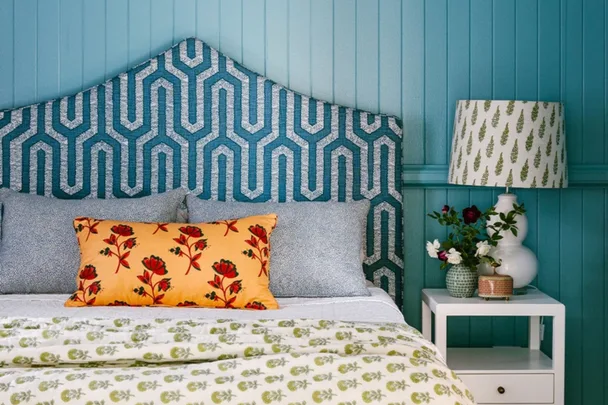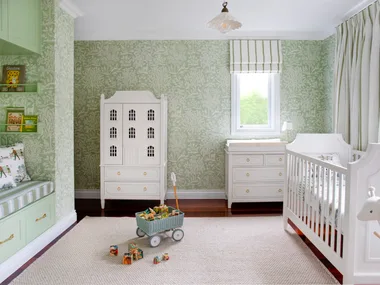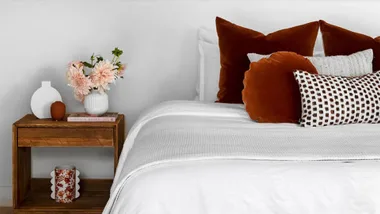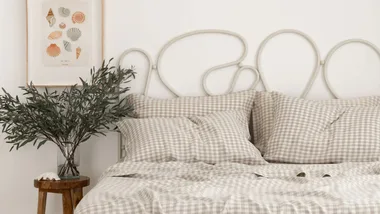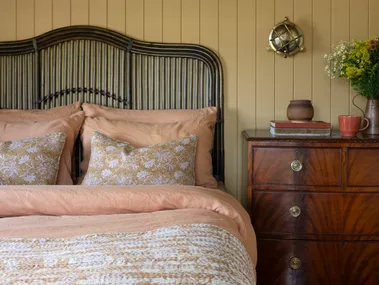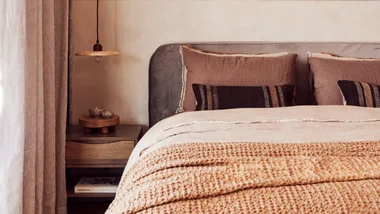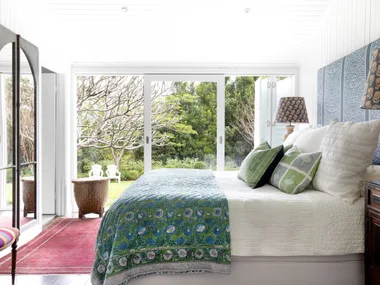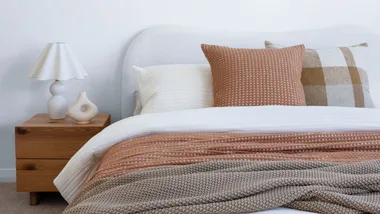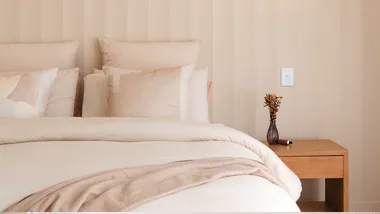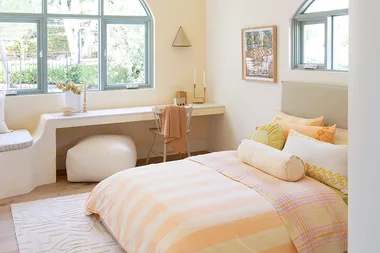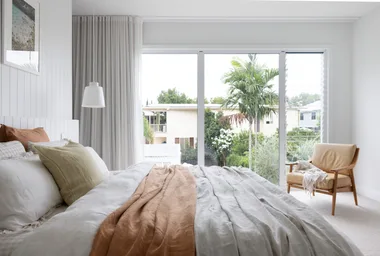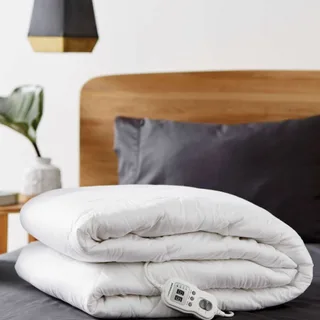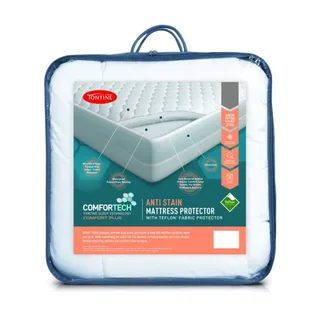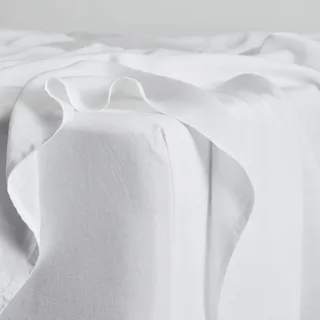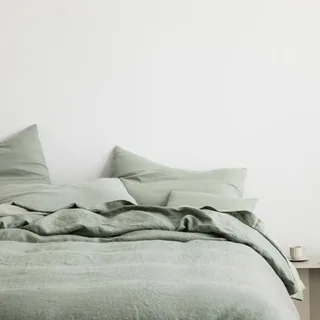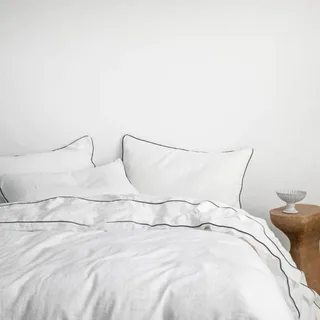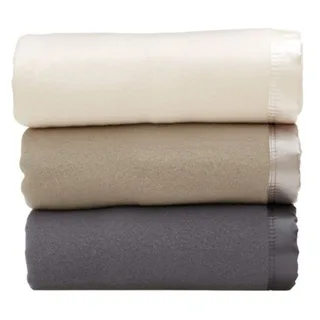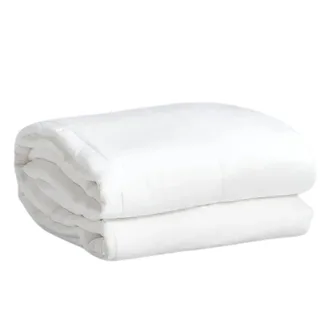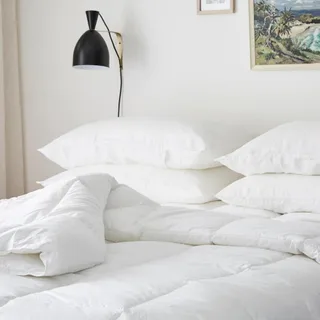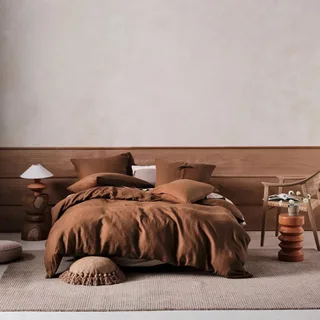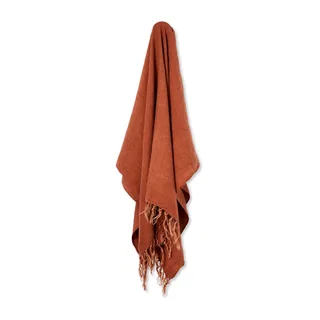Looking for bedding ideas that deliver on the promise of a peaceful slumber? As the most personal pocket of our homes, a thoughtfully composed bed with inviting layers can buffer against daily stresses and increase wellbeing.
“People are embracing ways to turn their bedrooms into cosy sanctuaries, where they feel cocooned and safe,” explains Meghan McGann, head of brand at MyHouse and House.
Fabrications across all categories are leaning towards tactile and natural bed linen that feel oh-so-good to touch. “There is a yearning for new and interesting textures,” says Christie Maartensz, head of homewares at Freedom, where vintage washes and quilting are key.
When it comes to prioritising your bedding budget, interior designer Lisa Burdus makes an excellent point. “I wouldn’t scrimp on sheets,” she says. “You are in them for eight hours every day – you want to be comfortable!” Christie agrees, noting: “There is nothing like getting into a beautifully dressed bed that is also really comfortable.”
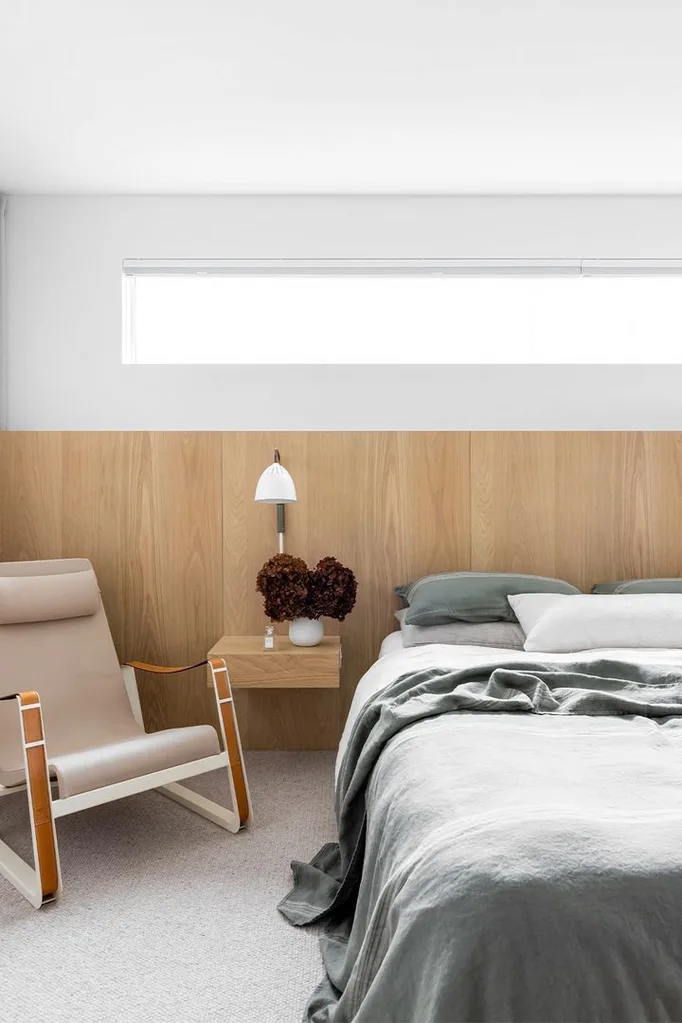
Essential bedding layers
So what layers make up a complete set of bedding? A well-made bed begins with three essential layers, plus pillows:
- Fitted sheet
- Flat or top sheet (here’s why you should always use a flat sheet)
- Quilt or duvet (with a cover)
Optional bedding layers
- Mattress protector
- Electric blanket
- Thermal blanket between the flat sheet and duvet (for adding warmth and weight during colder months)
- Coverlet which can either cover the entire bed, or folded in half at the end of the bed
- Throw blanket to drape over the foot of the bed
- Decorative throw cushions
Bedding layers
Bed skirts: The one item that will elevate your entire bedroom
While a valance or bed skirt is technically an optional layer, for interior designer Lisa Burdus, they are a vital component of a beautiful bedroom. “It really is one of the most underutilised things out there, but it’s like shoes completing an outfit – it’s an important anchor piece,” she says.
Decorative cushions
Meghan favours Euro cushions over smaller throw pillows. “We always like to use Euros in our styling because it gives the bed a sense of height, authority and volume,” she says.
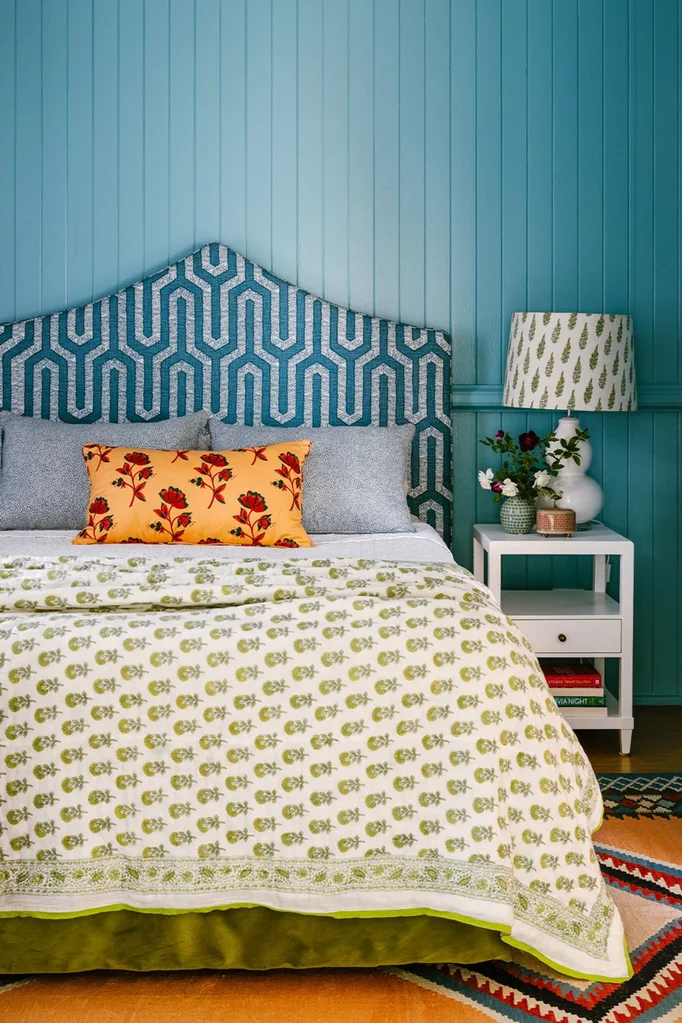
How to layer bedding like an expert
- Ensure your duvet and pillow inserts are evenly distributed in their covers and puffed up. Upsize your duvet and outer layers to get a generous drape. Got a queen-sized bed? Go king!
- Add a valance and then pull a fitted sheet over your mattress, smoothing down all creases. Follow this with a flat sheet, laying the print or piping detail face-down.
- Position your duvet or coverlet so there is an even overhang. Cuff this outer layer by folding the flat sheet over it at the head of the bed, for a hit of colour or pattern.
- Lay the pillows flat and stacked for a modern look, or prop them up against a tall headboard. Euro cushions placed behind the pillows add softness and height variation. A fail-safe cushion combination is two square cushions sitting upright with a smaller rectangular or bolster cushion centred in front.
- Fold a blanket or additional coverlet over the end third of the bed for a neat finish, or loosen up the look with a casually draped throw.
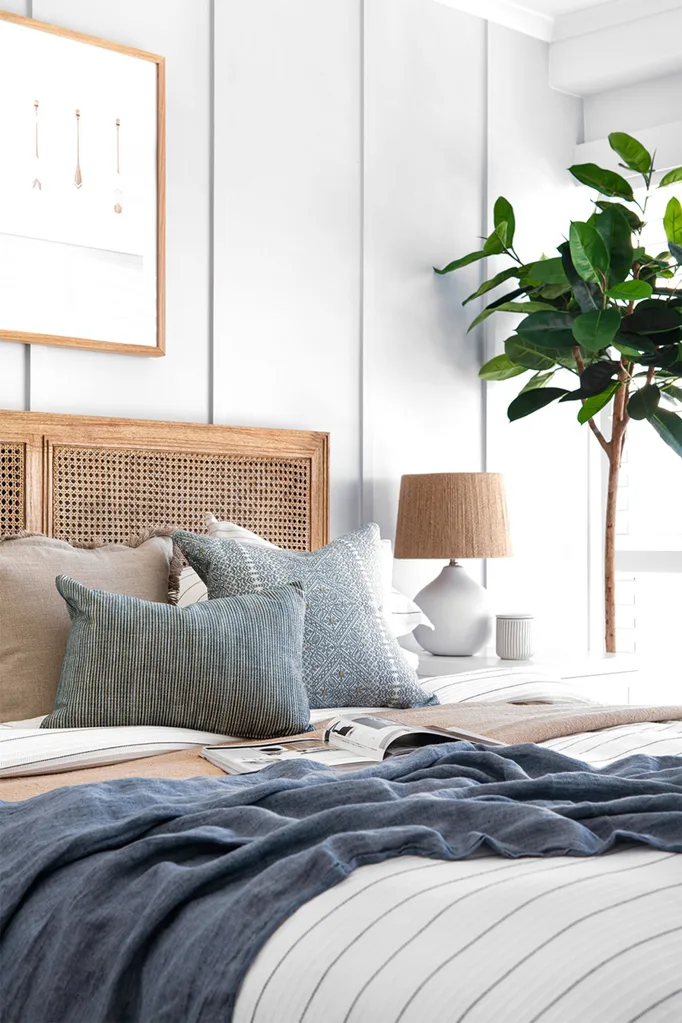
Washing and storing bedding
Washing your bed sheets and pillowcases weekly on a gentle cycle is highly recommended to keep the bedding free of nasties like dust mites and dead skin cells.
Sheets made from natural fibres such as silk or linen may require special care when laundering.
Good ventilation and an organised approach are essential for bedlinen storage bliss. Pop neatly folded sheet sets into their matching pillowcases before placing them into your linen cupboard.
“For households with different-sized beds, it’s a good idea to dedicate different shelves to the various sizes so they are easier to find,” says Meghan.
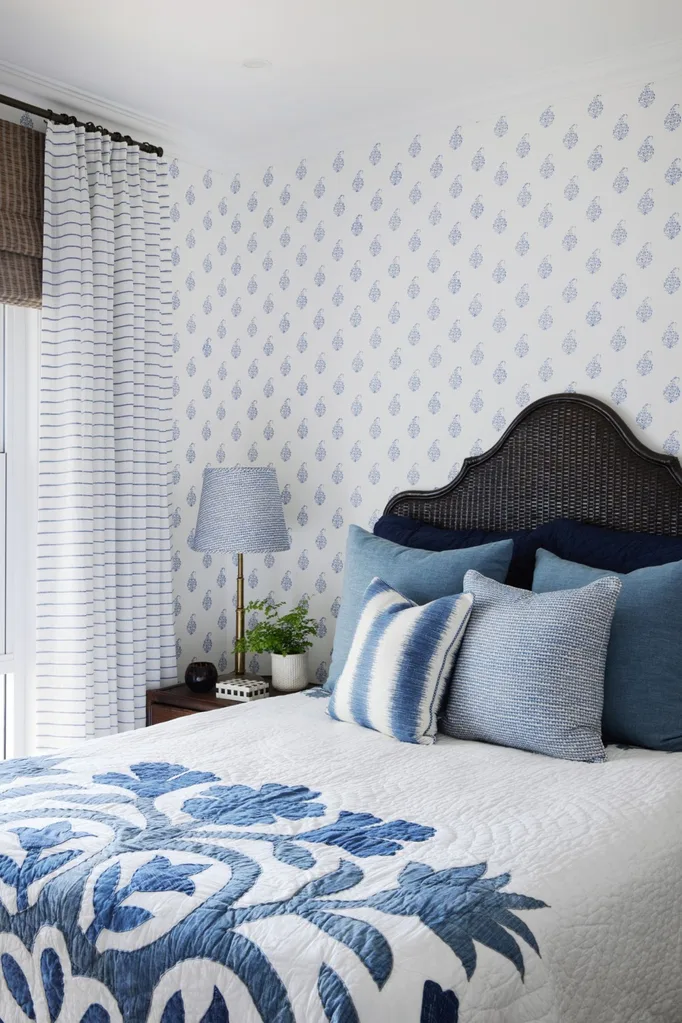
Best bedding colours
While our experts report that muted blues and greens are trending, it’s important to personalise your space with the colours you love. Draw palette inspiration from existing elements in the room, such as the art or rug, but don’t let that limit you.
“Throw in something offbeat,” says Lisa, explaining that the unexpected twist will add a punch of personality. If you stick to white sheets and duvet sets, it’s easy to experiment with colour by updating the cushions and throws.
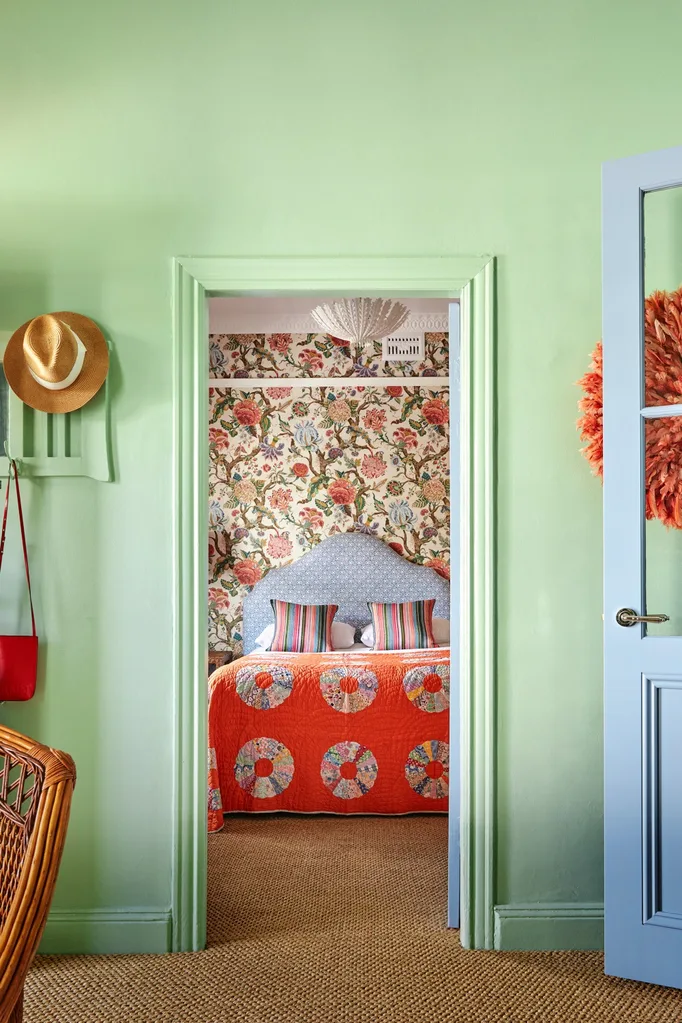
How to style patterned bedding
Perturbed by pattern? Interior designer Lisa can help you here. “It’s about the scale of the pattern and using patterns at different heights in the room,” she says. “It’s basically about repetition, but not necessarily matching patterns in a strict colour scheme.”
Lisa will often unify the look with patterned lampshades on the bedsides. Add in block colours to break up the prints – and if you prefer a monochromatic, pattern-free look, Christie from Freedom suggests contrasting the textures to create depth.
